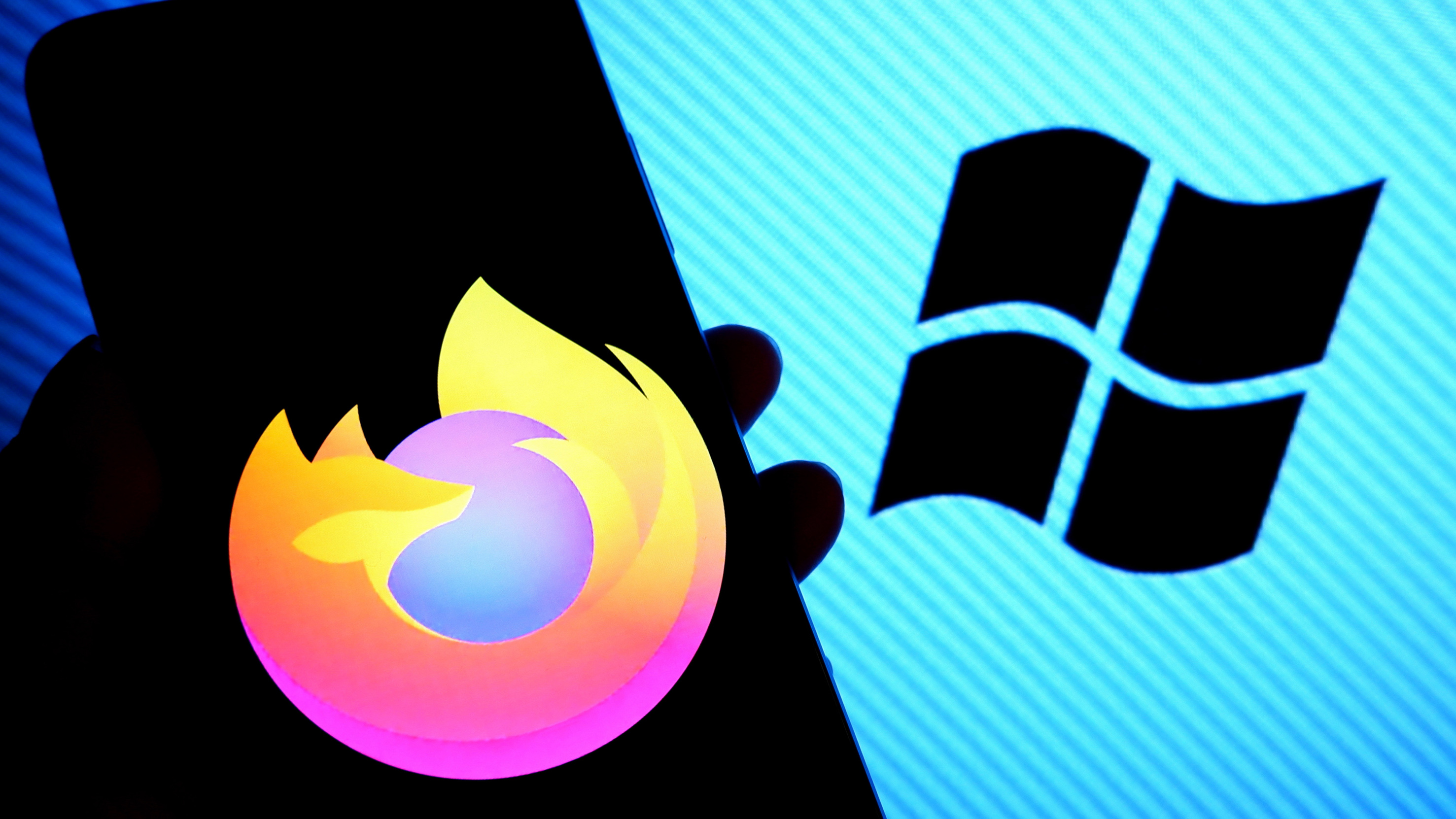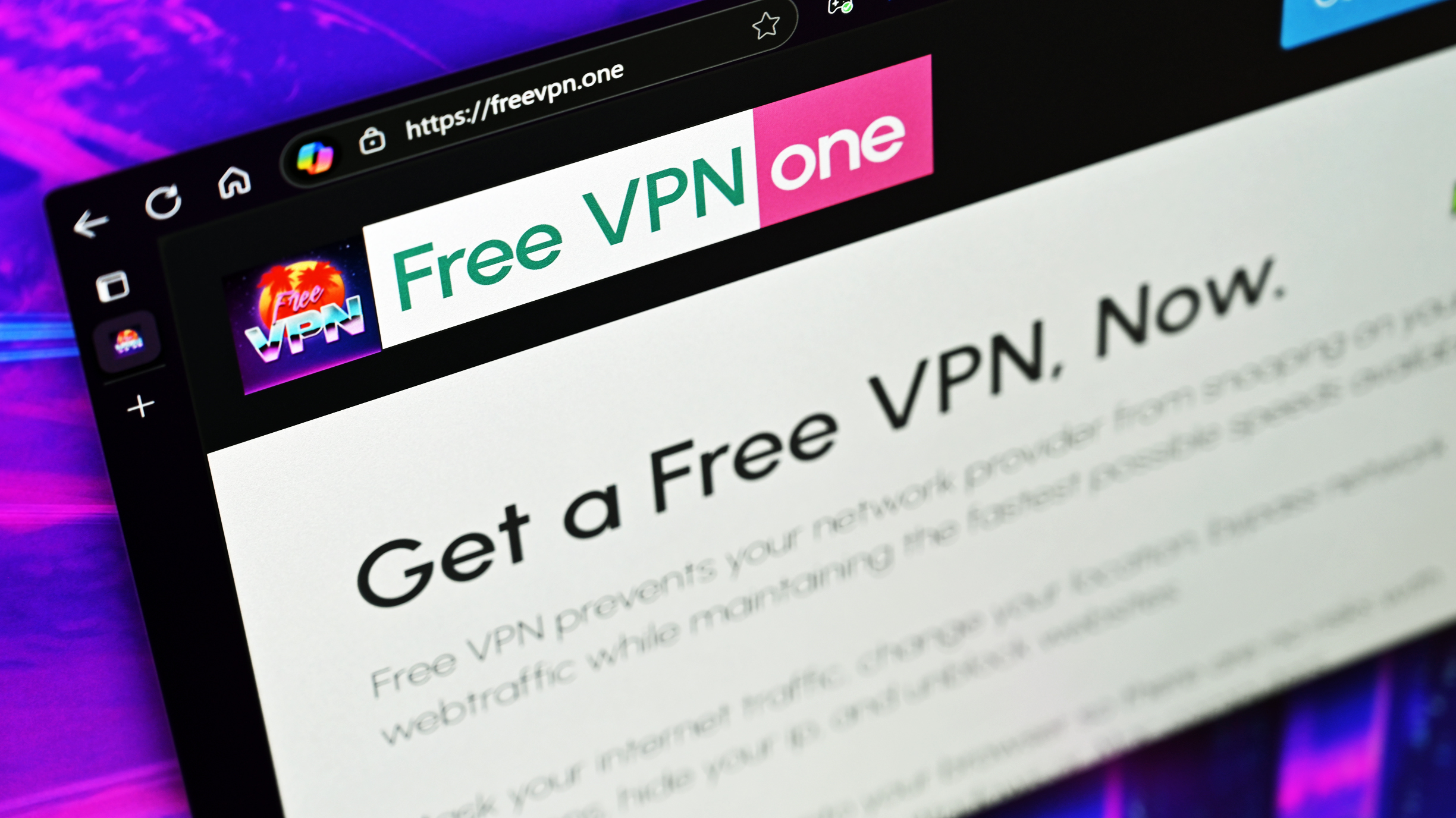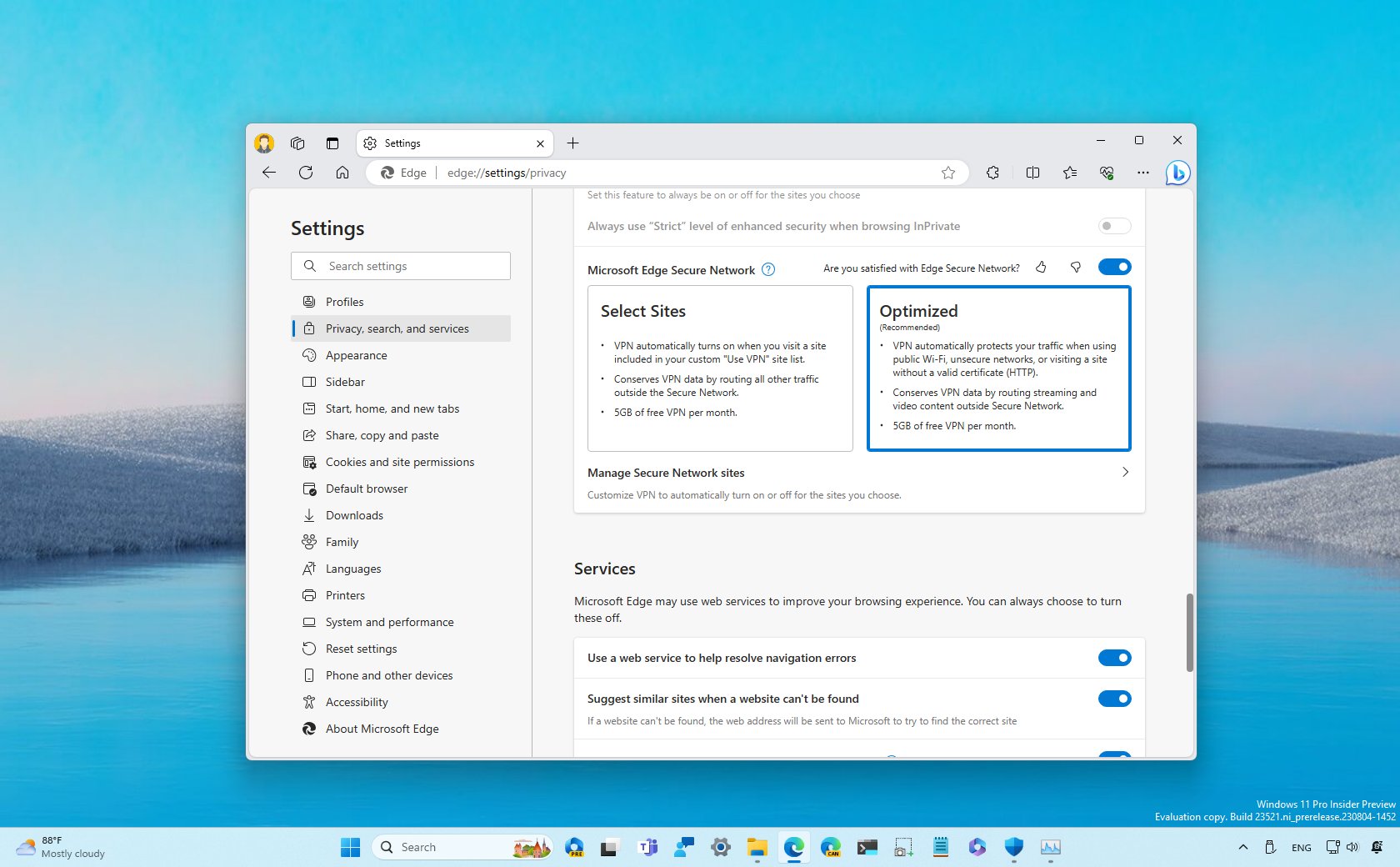Firefox gets a new security feature that Edge has had for years — here’s how it works, who gets access, and how it compares

All the latest news, reviews, and guides for Windows and Xbox diehards.
You are now subscribed
Your newsletter sign-up was successful
Mozilla has cooked up a new way to keep your browser habits safe from spying eyes: Firefox VPN. The latest Firefox VPN is currently in a Beta stage for testing, and Mozilla says that it's only available for a limited time to randomly selected users (via TechRadar).
Firefox VPN is a free addition to the web browser, and the wording in the Mozilla support document suggests that it will remain free after the testing period. Firefox has not placed any data limits, at least during the testing period.
Firefox VPN is designed to work within the Firefox browser only. Any web traffic that originates in the browser is directed through VPN servers managed by Firefox; any other web traffic originating elsewhere is not protected.
Mozilla says it works by "concealing your real IP as well as adding a layer of encryption to your communications" on the official Firefox VPN support page. Sounds like a standard VPN, albeit with limited scope.
Because the new VPN built into Firefox is invite-only while it's being tested, not everyone will get to give it a try. If you're one of the lucky users who is selected for testing, you'll see a prompt pop up when you launch Firefox asking if you'd like to try Firefox VPN.
If you don't see the prompt, well, you're out of luck for now.
This is Mozilla's second VPN to enter the market
A lot of Firefox users wondered why Mozilla called its first VPN "Mozilla VPN" and not "Firefox VPN" when it launched a few years ago. They now have an answer.
Yes, this is Mozilla's second VPN to enter the market. Mozilla VPN officially launched in 2020 following the retirement/rebranding of Firefox Private Network.
Mozilla VPN is a full-fledged VPN service that covers your entire PC or device, not just your data in Firefox. Mozilla VPN has a standalone app available for Windows 10 and Windows 11, as well as plenty of other devices.
As with most VPN services that cover all of your web traffic, Mozilla VPN is not free. You can subscribe on a monthly or yearly basis, and the lowest price you'll get is about $4.99 per month when you subscribe for a full year.
Not bad, especially as it allows you to use up to five devices under the same account.
But for those who don't want to pay a monthly subscription fee, Firefox VPN should be a tempting feature once it arrives (hopefully for free) for all Firefox users.
A free VPN? I thought I was supposed to avoid those...
VPNs are powerful tools that block third parties and bad actors from seeing the data you send out over the internet. It achieves this by shuttling your data through encrypted tunnels, with endpoint servers managed by the VPN company.
Because whoever is managing the servers can technically see what everyone is doing and where the data is coming from, you always want to select your VPN provider carefully.
Free VPNs are usually the worst offenders when it comes to selling your data that you thought was private. If a VPN service is free, it's often suspected that your data is being sold somewhere.
However, Mozilla says that its new Firefox VPN only collects technical data that's required to keep the service operating smoothly. Mozilla states:
Logs linked to your account are automatically deleted after 3 months. Importantly, Firefox VPN never logs the websites you visit or the content of your communications. For long-term planning, Mozilla keeps overall bandwidth statistics, but these are aggregated across all users and cannot be traced back to you.
Mozilla has been a popular browser for years, and it has a reputation for being secure and user-friendly. The sentiment among users, however, changed recently after a March 2025 update to data privacy in Firefox's Terms of Use.
The new terms suggested that Mozilla had a right to leverage user data in ways that would seriously damage its data privacy reputation. Mozilla was quick to update the ToU with clearer wording, and Firefox VP Ajit Varma was quoted as saying:
"Mozilla doesn’t sell data about you (in the way that most people think about ‘selling data’), and we don’t buy data about you. We changed our language because some jurisdictions define ‘sell’ more broadly than most people would usually understand that word."
Edge has had a built-in VPN since 2023 — how does Firefox VPN compare?
Much like the new Firefox VPN, Microsoft's Edge Secure Network is a VPN designed to protect web traffic originating in the browser only. It began rolling out in 2022 for Windows 11 and Windows 10 and remains available today.
Edge Secure Network is, of course, only available in Edge, but it's free for anyone who signs in to the browser using a personal Microsoft account. Users get 5GB of free data per month, up from the 1GB data allowance at launch.
👉 Related: How to increase privacy using built-in VPN on Microsoft Edge
Edge Secure Network has some intelligent settings that can help manage data usage. The default "Optimized" setting automatically enables the VPN if you're connected to public Wi-Fi (or other unsecured networks) or when you visit a site without proper certification.
You can also set Edge Secure Network to run a VPN on all sites, or you can set a custom list of sites on which you'd like the VPN to work. Like Firefox VPN, Edge only collects some diagnostic and support data, which is deleted every 25 hours.
Overall, Edge Secure Network is essentially the same as Firefox VPN, albeit with some data restrictions. It will be interesting to see if Mozilla places a similar data limit on Firefox VPN once it arrives for all users.

Follow Windows Central on Google News to keep our latest news, insights, and features at the top of your feeds!
All the latest news, reviews, and guides for Windows and Xbox diehards.

Cale Hunt brings to Windows Central more than nine years of experience writing about laptops, PCs, accessories, games, and beyond. If it runs Windows or in some way complements the hardware, there’s a good chance he knows about it, has written about it, or is already busy testing it.
You must confirm your public display name before commenting
Please logout and then login again, you will then be prompted to enter your display name.


